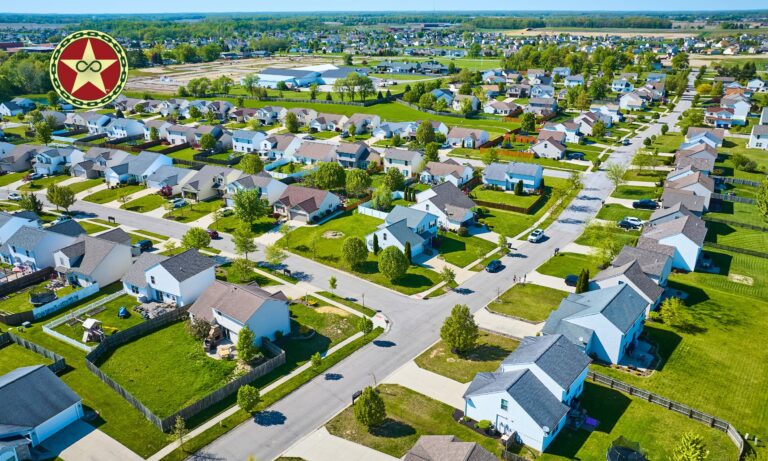Choosing the right neighborhood is a critical decision when buying a home, as it affects your lifestyle, property value, and overall satisfaction with your purchase. Several factors should be carefully considered to ensure you select a neighborhood that aligns with your needs and long-term goals. Here’s a comprehensive look at the key aspects to evaluate when choosing a neighborhood for buying a home.
One of the foremost factors to consider is the neighborhood’s location relative to your daily routines and essential services. Proximity to work, schools, grocery stores, medical facilities, and public transportation can greatly influence your convenience and quality of life. A well-located neighborhood minimizes daily commute times and makes it easier to access necessary amenities, thereby enhancing overall living comfort. Evaluating the distance to these key places helps ensure that your chosen neighborhood aligns with your lifestyle and daily needs.
Safety is another crucial factor when selecting a neighborhood. Researching crime rates and speaking with local law enforcement or current residents can provide insights into the area’s safety. Neighborhoods with low crime rates generally offer a more secure living environment, which contributes to peace of mind. Additionally, observing the general condition of the neighborhood, including the upkeep of public spaces and properties, can offer indirect indicators of safety and community pride.
The quality of local schools is a significant consideration, particularly for families with children or those planning to start a family. High-performing schools can enhance your children’s education and have a positive impact on property values. Even if you do not have children, good schools contribute to a neighborhood’s appeal and long-term value. Researching school ratings, academic performance, and available educational programs can help assess the quality of schools in the area.
The overall ambiance and aesthetic of a neighborhood play a role in your comfort and satisfaction. Consider the neighborhood’s appearance, including the condition of homes, landscaping, and public spaces. A well-maintained and attractive environment can enhance your living experience and contribute to a sense of community. Additionally, evaluate the neighborhood’s architectural style and general vibe to ensure it aligns with your preferences and lifestyle.
Future development plans and the neighborhood’s growth potential are important factors to consider. Investigating local zoning laws, upcoming infrastructure projects, and planned developments can provide insights into the future trajectory of the area. Neighborhoods with planned improvements or development projects often offer potential for property value appreciation. However, it’s also important to consider how such changes might impact your quality of life, such as increased traffic or construction noise.
Property values and market trends in the neighborhood should be assessed to understand the investment potential. Reviewing historical property values, current market conditions, and recent sales data can provide insights into the neighborhood’s stability and potential for future appreciation. A neighborhood with a history of steady or increasing property values can be a sound investment, whereas declining values might signal underlying issues that require careful consideration.
Community amenities and recreational opportunities can significantly enhance your living experience. Explore the availability of parks, recreational facilities, and community centers within the neighborhood. Access to amenities such as walking trails, sports facilities, and cultural attractions can improve your quality of life and foster a sense of community. Additionally, check for local events and activities that might enrich your social and recreational life.
The neighborhood’s demographic profile and community culture are also worth considering. Understanding the demographics, including age groups, family structures, and cultural backgrounds, can help ensure that the neighborhood aligns with your preferences and lifestyle. Engaging with local residents or attending neighborhood events can provide valuable insights into the community’s character and values.
Traffic patterns and accessibility are practical aspects that affect daily life in a neighborhood. Assess the flow of traffic, congestion levels, and the ease of access to major roads and highways. Neighborhoods with well-planned traffic patterns and convenient access to transportation routes can contribute to a more pleasant living experience and minimize commuting hassles.
Property maintenance and homeowner associations (HOAs) can influence your living experience and overall satisfaction with the neighborhood. If the area has an HOA, review its rules, fees, and regulations to ensure they align with your preferences. Well-maintained properties and active homeowner associations can contribute to a positive neighborhood atmosphere, whereas poorly managed HOAs might lead to disputes or dissatisfaction.
Finally, engaging with current residents and gathering firsthand experiences can provide valuable insights into the neighborhood. Conversations with neighbors can reveal details about the community’s atmosphere, social dynamics, and any potential issues that might not be immediately apparent through research alone. Resident feedback can help you make a more informed decision and gauge whether the neighborhood is a good fit for you.
In summary, choosing the right neighborhood involves evaluating a variety of factors, including location, safety, school quality, neighborhood aesthetics, future development potential, property values, community amenities, demographics, traffic patterns, and property maintenance. By thoroughly researching and considering these aspects, you can select a neighborhood that aligns with your lifestyle, preferences, and long-term goals, ultimately ensuring a more satisfying and successful home-buying experience.




